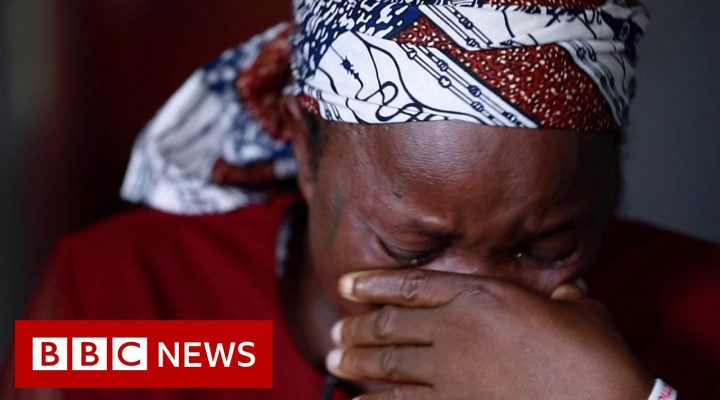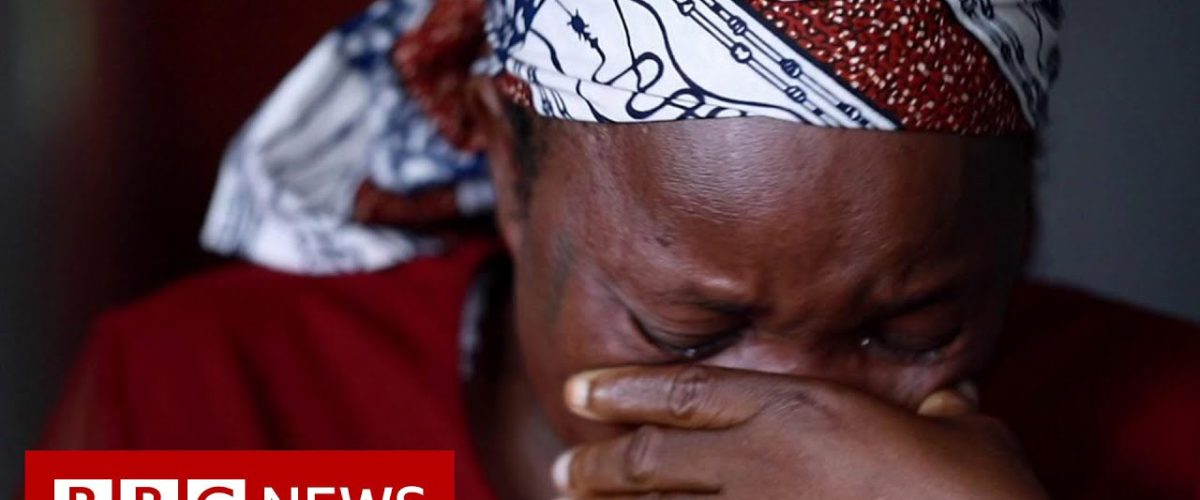Blasphemy laws and their discriminatory enforcement are becoming another major threat to religious liberty in Nigeria, according to a report by the U.S. Commission on International Religious Freedom.
The USCIRF study also found that blasphemy bans contained in the nation’s criminal statutes and state-level Shari’a rules are often carried out for political gain, to persecute religious minorities or to settle personal grudges.
This is an especially important issue in a nation almost evenly split between Christians and Muslims with a tiny minority of Baha’i, Buddhist, Hindu, humanist, Jewish and indigenous traditions, the commission said. “The increasing enforcement of blasphemy laws enshrined in Nigeria’s criminal and Shari’a codes poses a significant risk to religious freedom for Nigerians, especially religious minorities and those who espouse unpopular or dissenting beliefs, worldviews, or religious interpretations.”
“The increasing enforcement of blasphemy laws enshrined in Nigeria’s criminal and Shari’a codes poses a significant risk to religious freedom for Nigerians.”
The rise of anti-blasphemy actions in Nigeria comes during a rise in high-profile outbreaks of sectarian and mob-driven violence motivated by religious intolerance and deep partisan divides, according to a USCIRF report.
“In recent years, nonstate actor violence has increased in most parts of Nigeria, and this violence has yielded devastating humanitarian and human rights consequences, including but not limited to violence based on religion and other violations of Nigerians’ rights to freedom of religion or belief,” USCIRF reported.
In its most recent study, released in October, the commission examined the role played by anti-blasphemy regulations in the violence that threatens religious liberty in Nigeria.
The country’s criminal code holds that “any person who does an act which any class of persons consider as a public insult on their religion, with the intention that they should consider the act such an insult, and any person who does an unlawful act with the knowledge that any class of persons will consider it such an insult, is guilty of a misdemeanor and is liable to imprisonment for two years.”
In addition, a dozen of Nigeria’s northern states have adopted Shari’a penal codes which criminalize actions or writings deemed to be contemptuous or insulting of religious creeds. Those accused of affronting Islamic prophets are eligible for the death penalty, USCIRF reported.
“Shari’a blasphemy laws differ from civil laws in two key ways: First, they authorize capital punishment against convicted blasphemers; and second, they punish more harshly individuals who blasphemed against Islam than those who insult other religions.”
The application of blasphemy laws appears to be inconsistent and discriminatory, the commission added. “There is no record of the courts pursuing charges against individuals who insult humanism, Judaism, or traditional or indigenous religions, despite that public discourse frequently includes language that practitioners of these religions find insulting.”
Motivations for prosecution often do not require genuine concerns about blasphemy, the USCIRF added. “Evidence suggests that prosecutions are influenced by social, economic and political power, which individuals with dissenting beliefs and minority worldviews often lack.”
The report provides several examples of the rise in blasphemy prosecutions in Nigeria, from a humanist activist sentenced by a state court in April to 24 years in prison for causing public unrest with blasphemous social media content, to that of Christian health care worker Rhoda Jatau accused of blasphemy in the Muslim-dominated state of Bauchi in May.

Rhoda Jatau
“Jatau reportedly shared a video via WhatsApp that members of her community considered blasphemous” in light of the stoning death of Christian university student Deborah Emmanuel earlier in May. “Jatau, a 45-year-old mother of five, is reportedly charged under the State Penal Code and federal cybercrimes law with inciting a public disturbance, exciting contempt of religious creed, and cyber stalking.”
But as the death of Emmanuel and others demonstrate, the outcome of alleged blasphemy cases ends up in outbreaks of mob violence, the commission noted.
“A mob in Bauchi seeking to murder Rhoda Jatau for alleged blasphemy in the aftermath of Deborah Emmanuel’s murder killed at least 11 people. In June, an angry mob in Abuja stoned and burned to death Ahmad Usman, a Muslim man, for alleged blasphemy.”
Usman’s case demonstrates that blasphemy allegations can result from personal vendettas, USCIRF noted. “Investigations into the incident asserted that the alleged blasphemer and his accuser had experienced a disagreement regarding joint organized criminal activity, and that the accuser had triggered the mob through allegations of blasphemy to exact revenge on the victim.”
Participants in such violent acts are rarely prosecuted, let alone investigated. USCIRF said it uncovered little evidence that perpetrators are ever prosecuted for the serious crimes they committed.
“Authorities brought weak charges against the individuals apprehended for their role in the mob violence that killed Deborah Emmanuel, reportedly charging them with criminal conspiracy and disturbing the peace, both bailable offenses,” the commission said. “State hesitance to prosecute perpetrators and inciters of violence against those with dissenting beliefs appears rooted in the threat of public and voter backlash against public officials who express sympathies with those society considers having blasphemed.”
Some in Nigeria told USCIRF that blasphemy laws prevent wider outbreaks of violence, and that the incarceration of the accused protects them from being attacked.
“These charges will mostly likely continue to disproportionately impact individuals expressing dissenting religious interpretations or beliefs.”
“Public officials often seek to limit the enforcement of Shari’a blasphemy laws in certain ways. Governors routinely overturn death sentences after several years. In some instances, authorities have afforded alleged blasphemers the opportunity to repent or apologize for their offense in lieu of pressing charges,” the commission reported. “While this may demonstrate an attempt by government officials to avoid their legal mandate to detain an individual accused of blasphemy as dictated by Shari’a criminal codes, it may also constitute the state coercing its citizens to express religious views with which they do not agree in order to avoid arrest and prosecution.”
USCIRF said it also was told by some in Nigeria that the infrequent nature of blasphemy prosecutions proves such laws are no threat to religious freedom.
“However, the existence of blasphemy laws in these codes keeps the door open for state officials to pursue blasphemy charges in a court of law,” the report noted. “These charges will mostly likely continue to disproportionately impact individuals expressing dissenting religious interpretations or beliefs.”
As a result, USCIRF said it is recommending the U.S. government designate Nigeria as a Country of Particular Concern, meaning economic and other sanctions could be imposed.
“Blasphemy laws in Nigerian criminal and Shari’a codes undermine the country’s strong legal protections for freedom of religion or belief and societal respect for interfaith tolerance,” the USCIRF report concludes.
Related articles:
House passes bipartisan resolution against blasphemy, heresy and apostasy laws
Blasphemy laws put Nigeria in the spotlight again — with a musician and a 13-year-old sentenced


